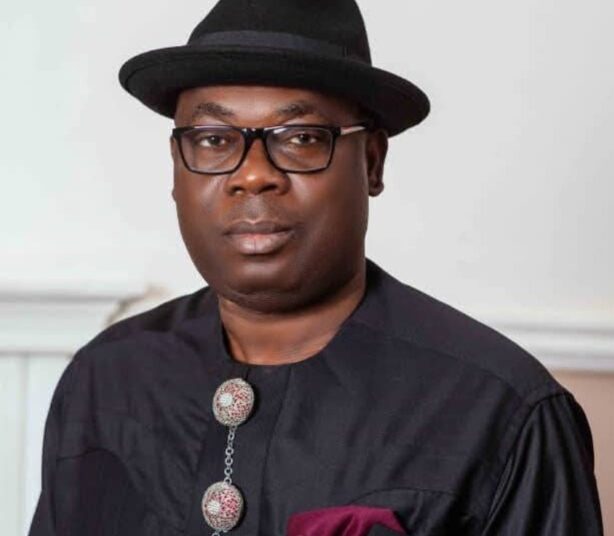Governments and stakeholders in the Nigeria project have been charged to leverage the integration of Artificial Intelligence technologies as tools in key sectors of the nation to achieve rapid and sustainable growth.
A member of the House of Representatives, Hon. Donald Ojogo who gave the advice, said AI is rapidly opening a new frontier in business, corporate practices, economic practices, human society, and governmental policy.
Ojogo who is representing Ilaje/Ese-Odo federal constituency at the National Assembly stated this at a one-day conference at Afe Babalola University, Ado Ekiti, (ABUAD) College of Social and Management Sciences’ with the theme: ‘Artificial Intelligence and Sustainable Development: Implications for Government, Economy, Society and Policy Making in Nigeria”.
The federal lawmaker, who was represented by a former Chief Press Secretary to a governor in Ondo State, Mr Richard Olatunde, emphasised on developing and deploying AI technologies to address immediate needs in sectors such as healthcare, agriculture, education, environmental protection, among others.
He, however, advocated interdisciplinary research as essential to bridging the gap between AI technology and its practical implications.
“This involves collaborations between computer scientists, economists, sociologists, and environmental scientists to create holistic solutions that are both technologically sound and culturally relevant.
“For instance, integrating indigenous knowledge systems with AI-based models could lead to innovations that are uniquely suited to local challenges, thereby enhancing community acceptance and effectiveness,” he said.
Ojogo particularly said that Artificial Intelligence holds significant potential for driving sustainable development in the riverine areas, a region with unique challenges and burgeoning opportunities.
He further called for continuous monitoring and evaluation to assess the impact and sustainability of AI saying, “Future research could, therefore, develop advanced analytical tools and methodologies to measure the effectiveness of AI technologies in real-time.
“By providing timely insights into the performance of AI applications, researchers can assist policymakers and practitioners refine their strategies, ensuring that AI continues to contribute positively to sustainable development goals in the riverine areas”.
On how to harness the full potential of AI, he said more comprehensive studies were required to understand its long-term impacts on economic stability and social inequality.
Another keynote speaker, Dr Awe Agboluga, recommended that the Financial Reporting Council of Nigeria (FRC) should mandate AI standards to address the “black box” problem and enhance transparency in financial and corporate governance applications.
The renowned account and management consultant also tasked the Economic and Financial Crimes Commission (EFCC), and professional bodies like ANAN and ICAN to develop AI ethics training programmes to address algorithmic bias and promote ethical governance.
He stressed that the Federal Ministry of Communications, Innovation, and Digital Economy should strengthen the enforcement of the NDPR to ensure data privacy and security in AI deployment.
Deputy Vice Chancellor, Administration of ABUAD, Prof Olasupo Ijabadeniyi who represented the Vice Chancellor, Prof. Smaranda Olarinde at the event, said the university is taking proactive steps to align its curriculum and research priorities with the technologies shaping our future by introducing various skills to our students across all colleges.
“These include Artificial Intelligence, Blockchain, Cloud Computing, Internet of Things (IoT), Robotics, Cybersecurity, Full Stack Development, Metaverse Technologies, and Web 3.0. Our students are not just being prepared for the future, they are being equipped to lead it. AI, in particular, offers tremendous possibilities for transforming Nigeria’s developmental trajectory,” he said.
In his address, the Provost of SMS, ABUAD, Prof. Olayinka Aina, who doubles as the DVC (Academics) said research and innovation are not abstract ideas at the institution but they are lived values from which the university has distinguished itself as a centre of excellence in teaching, research, and development.
He disclosed that as part of the institution’s response to the digital revolution, ABUAD has secured approval from the National Universities Commission (NUC) to commence bachelor degrees in Data Science and Cybersecurity from 2025/2026 academic session.





